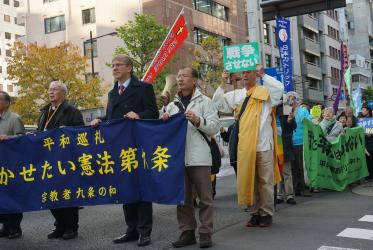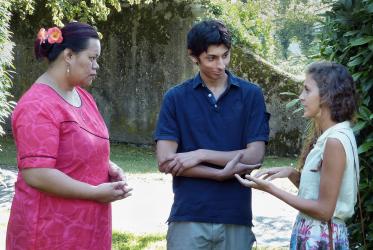Displaying 141 - 160 of 162
Pilgrimage of justice and peace gives vision for WCC programmes
22 November 2014
A picture of pilgrimage
08 July 2014
“Ecumenism in the forest” draws smiles
07 July 2014
After Busan: A pilgrimage of justice and peace
29 January 2014
Assembly renews churches’ commitment towards justice and peace
08 November 2013
Message of the WCC Assembly: “We intend to move together”
08 November 2013
Youth delegates prepare for WCC assembly
24 September 2013
Asian youth call for justice and peace
13 September 2013
Youth build multi-faith community in Bossey
28 August 2013








